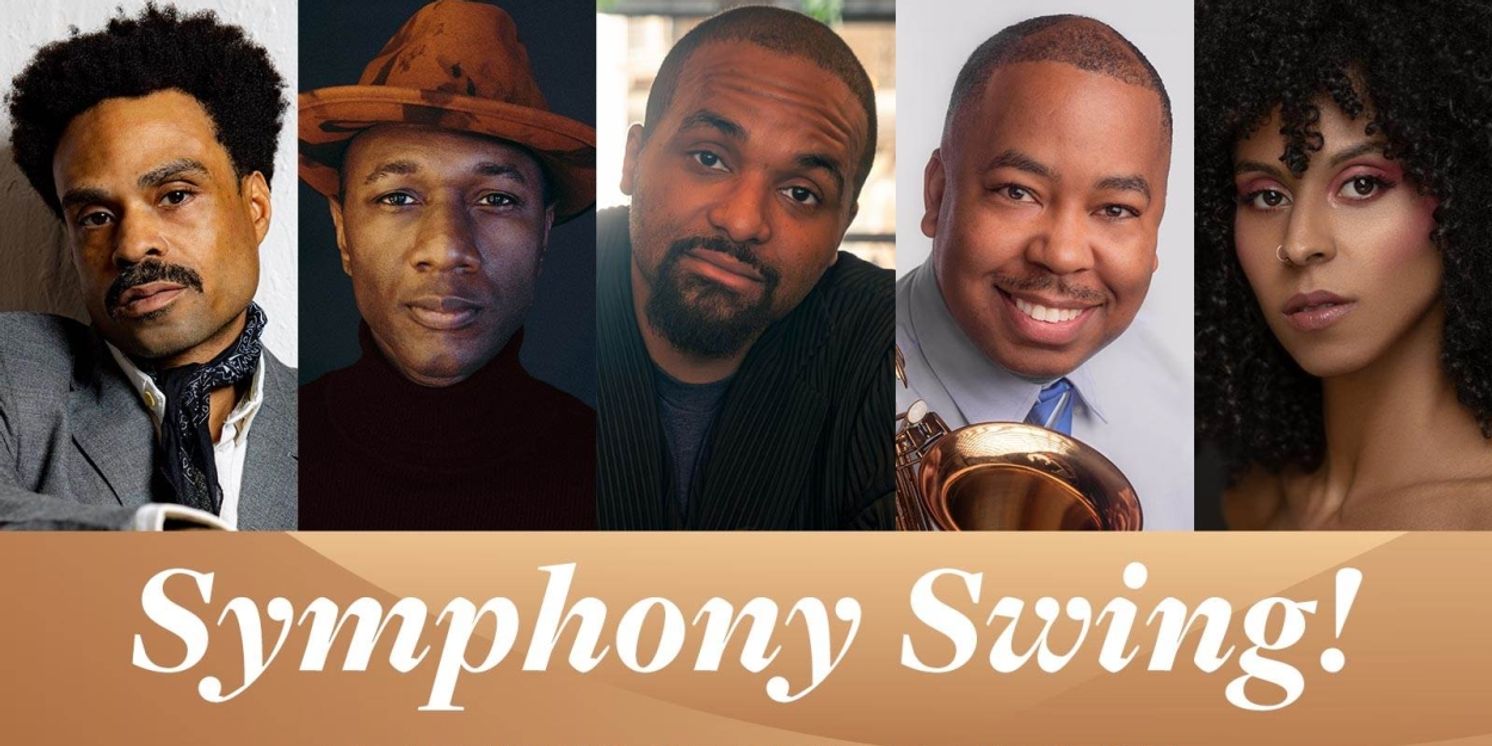Review: SYMPHONY SWING! AN EVENING OF DUKE ELLINGTON at Kennedy Center
The National Symphony Orchestra Begins Salute to the Duke

The American musical giant Duke Ellington wrote more than 1,000 compositions in his long career, and to mark the 125th anniversary of his birth in his native city, The Kennedy Center is determined to celebrate a lot of them.
One of the first of many events to mark the impending April 29 birthday occurred this weekend with the National Symphony Orchestra performance of “Symphony Swing! An Evening of Duke Ellington.”
Guest conductor Daniel Bartholomew-Poyser of Canada was a cordial host, beginning the Concert Hall evening with a pair of late career Ellington orchestral works.
Having created dozens of jazz standards, the ever inventive Duke is credited with helping invent the very idea of orchestral jazz, using the full power of a symphony to animate his musical ideas.
The first of the evening was the suite from “The River,” originally commissioned for the 30th anniversary of the American Ballet Theatre in 1970. Even then, it was presented as a work in progress in seven movements (arranged by Ron Collier) and completed so close to premiere date that Alvin Ailey could only choreograph six of its 12 movements.
Bartholomew-Poyser played five; starting with the timely, timpani-laden “Spring,” which Ellington had described as “a newborn baby…wiggling, gurgling, squirming, squealing.” It shifted to a “Giggling Rapids” full of piano glissando and leveled out with a more placid movement, “The Lake.”
The first half continued with an even later piece — in fact, Ellington’s last, with final notes dictated to his son Mercer from his hospital bed. The 1974 ”Three Black Kings,” with its distinct movements, was inspired by Balthazar, the Black king of the Nativity; King Solomon of ancient Israel, and America’s own Martin Luther King Jr.
It also felt closer to more familiar Ellington works due to the gospel undertow of the final movement, and the addition of guest saxophonist Grant Langford, who was given prominence at the foot of the stage instead of other of the evening’s horn standouts who played in relative obscurity in the back rows of the orchestra.
The “Symphony Swing!” was all very measured up to this point, making one think an overlarge orchestra wasn’t the best way to fulfill Ellington’s musical ideas. Langford, for one, seemed constrained by fine arts perimeters.
Things loosened a bit when pianist Sullivan Fortner took the stage for Ellington’s 1943 “New World A-Comin,’” a piano suite addressing a hopeful future, “a place in the distant future, where there would be no war, no greed, no categorization, no non-believers, where love was unconditional and no pronoun was good enough for God,” as Ellington wrote in his autobiography.
For his spotlight, Fortner lowered the music rack, allowing that he both knew the piece and was ready to do a bit of his own improvisation if needed. He also raised the grand piano lid, obscuring the conductor behind him while not appreciably loudening his sound (it might be better to add a microphone for a piano soloist fronting a 96-member orchestra).
The latter half of the concert concentrated on the standards known so well from Ellington’s songbook, using a trio of singers. Following an overture from Bartholomew-Poyser that heralded the tunes to come, the young jazz singer Alita Moses glided through “Don’t Get Around Much Anymore” before making her way through a “Satin Doll” that seemed thoroughly deconstructed in the arrangement by Tim Davies.
The trend continued through the songs by the singer Bilal, who has a lovely, soulful voice, but the insistent arrangements by Derrick Hodge made both “Caravan” and “In a Sentimental Mood” stray from their moorings.
Both were aided by nifty piano additions by Fortner in addition to Bilal’s vocals, but why salute a jazz giant if you’re going to obscure his timeless melodies?
Hitmaker Aloe Blacc was more straightforward in his presentations of “I Got It Bad (And That Ain’t Good)” and “(In My) Solitude,” with his crooning matching his stylish porkpie hat. But he didn’t seem especially comfortable doing either song.
Each returned to do another number. Moses rendered a fine “I Let a Song Go Out of My Heart.” Bilal handled “It Don’t Mean a Thing if It Ain’t Got That Swing,” leaving the audience to do the scatting do-wah refrain. And following a “Hey Buddy Bolden” that showcased an uncredited orchestra cornet player, Blacc finally flagged down “Take the A Train,” that brought the other singers out for its final verse.
If you missed a few dozen or so of your favorite Duke songs in the show, there will be plenty of opportunities during additional Ellington tributes at the Kennedy Center this season.
Running time: Two hours with one 20 minute intermission.
“Symphony Swing! An Evening of Duke Ellington” runs through March 16 at the Kennedy Center for the Performing Arts, 2700 F St NW. Tickets available at the button below. Information on other Ellington events at the Kennedy Center this season is available here.
Reader Reviews

Videos

